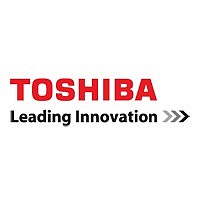TOTX147LF,T Toshiba, TOTX147LF,T Datasheet

TOTX147LF,T
Specifications of TOTX147LF,T
Related parts for TOTX147LF,T
TOTX147LF,T Summary of contents
Page 1
FIBER OPTIC TRANSMITTING MODULE FOR DIGITAL AUDIO EQUIPMENT Conforms to JEITA Standard CP−1212 (Digital Audio Optical Interface for Consumer Equipment). LED is driven by differential circuit. A Self−tapping hole for easy attachment to Audio Equipment panels. Shutter System 1. Maximum ...
Page 2
Electrical and Optical Characteristics Characteristics Data Rate Transmission Distance Pulse Width Distortion (Note 4) Fiber Output Power (Note 5) Peak Emission Wavelength Current Consumption High Level Input Voltage Low Level Input Voltage Note 2: LED is on when input ...
Page 3
... Note that it is not dust or waterproof. As mentioned before, optical modules are optical components. Thus, in principle, soldering where there may be flux residue and flux removal after soldering is not recommended. Toshiba recommend that soldering be performed without the optical module mounted on the board. Then, after the board has been cleaned, the optical module should be soldered on to the board manually. If the optical module cannot be soldered manually, use non− ...
Page 4
Panel attachment TOTX147L(F,T) has hole for panel attachment. Please be sure to attach it to panel with self−tapping screw. (7) Solvent When using solvent for flux removal, do not use a high acid or high alkali solvent. Be careful ...
Page 5
... Toshiba is continually working to improve the quality and reliability of their products. Nevertheless, semiconductor devices in general can malfunction or fail due to their inherent electrical sensitivity and their vulnerability to physical stress the responsibility of the buyer, when utilizing Toshiba products, to observe standards of safety, and to avoid situations in which the malfunction or failure of a Toshiba product could cause loss of human life, bodily injury or damage to property ...
Page 6
... TOSHIBA is continually working to improve the quality and reliability of its products. Nevertheless, semiconductor devices in general can malfunction or fail due to their inherent electrical sensitivity and vulnerability to physical stress the responsibility of the buyer, when utilizing TOSHIBA products, to comply with the standards of safety in making a safe design for the entire system, and to avoid situations in which a malfunction or failure of such TOSHIBA products could cause loss of human life, bodily injury or damage to property ...







